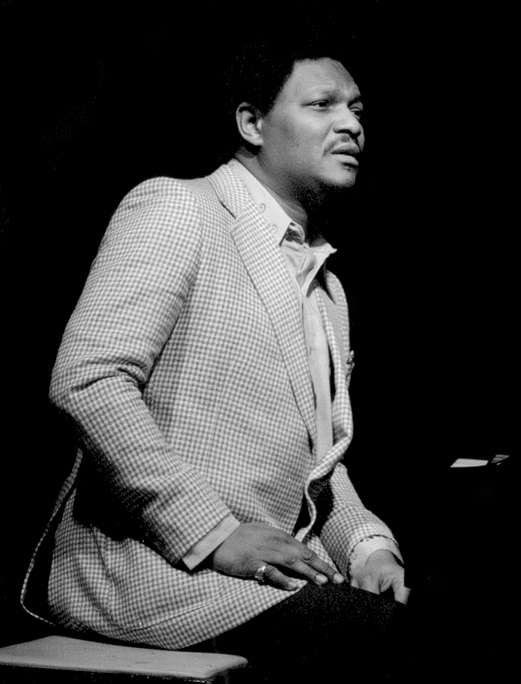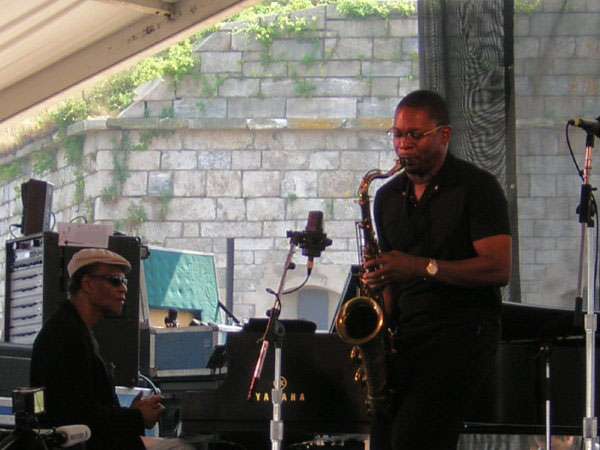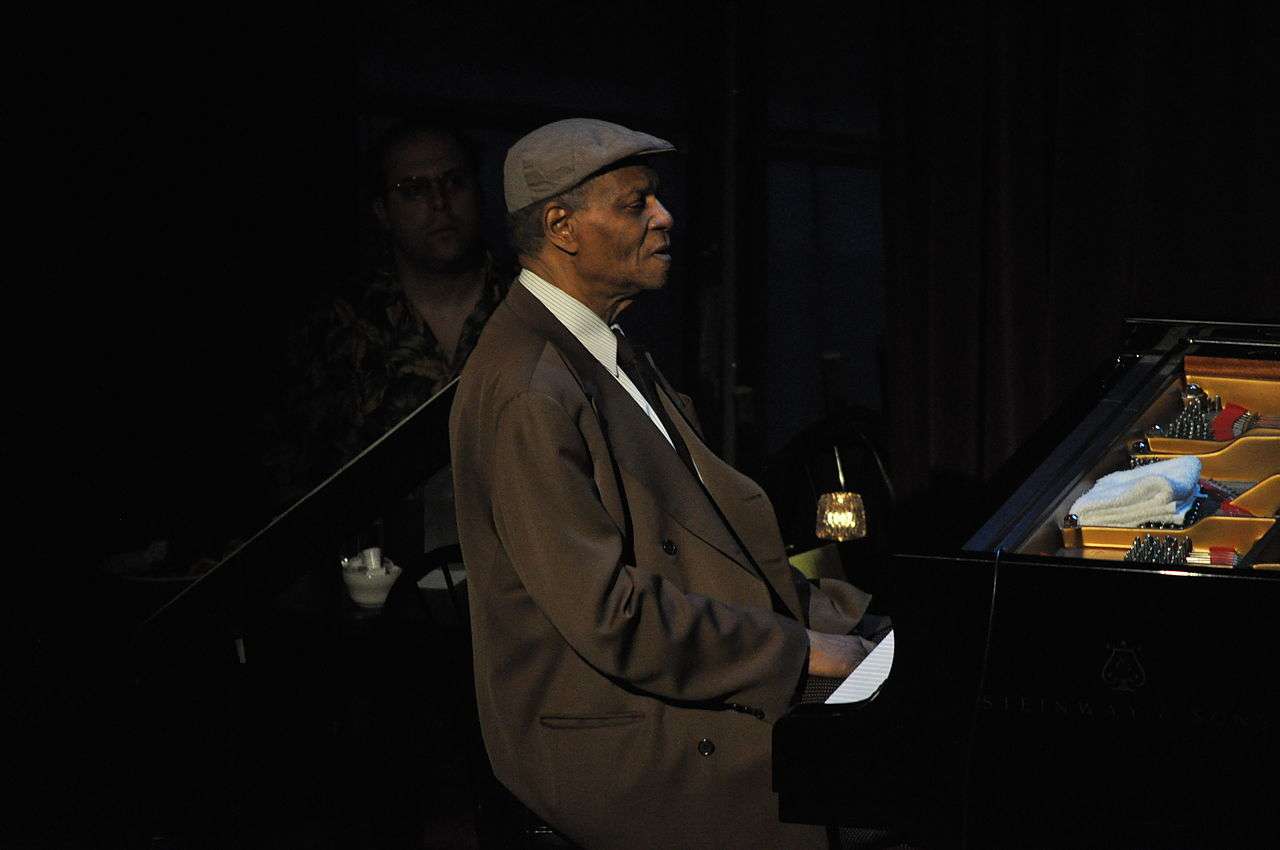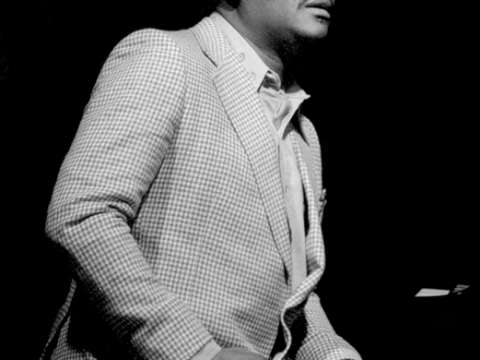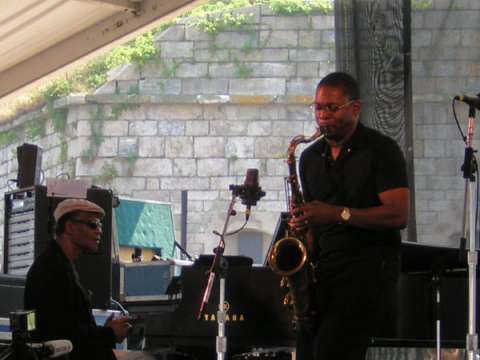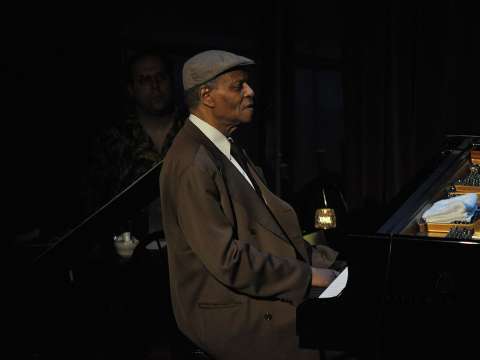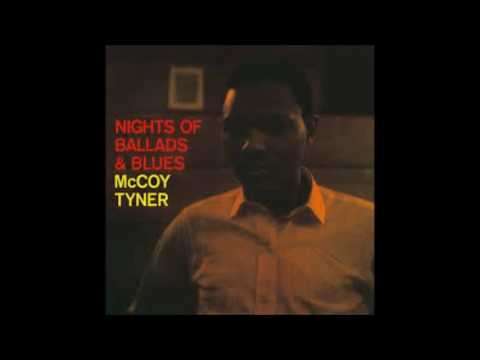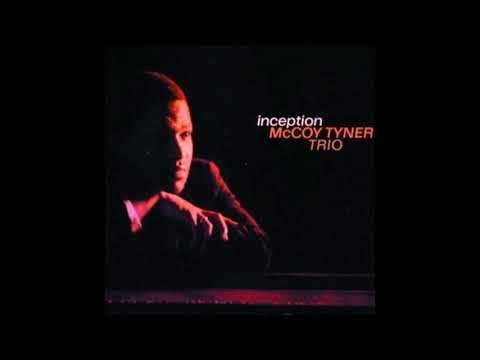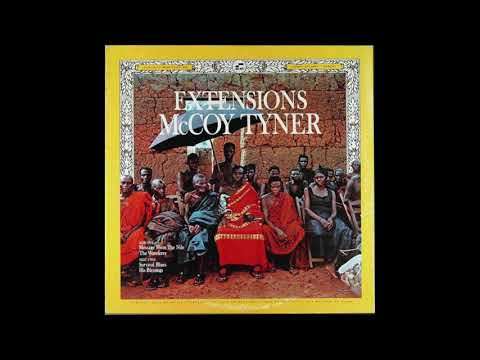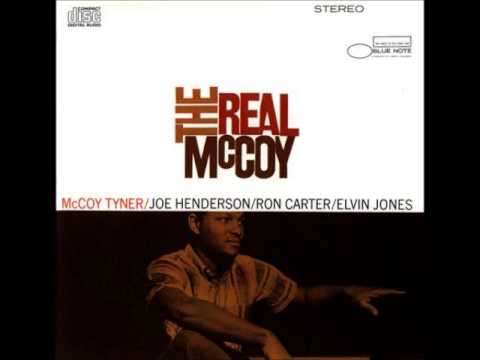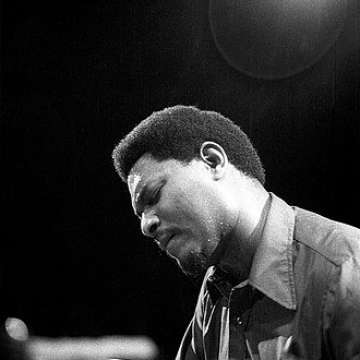

McCoy Tyner (1938-2020)
To me living and music are all the same thing. And I keep finding out more about music as I learn more about myself, my environment, about all kinds of different things in life. I play what I live. Therefore, just as I can't predict what kinds of experiences I'm going to have, I can't predict the directions in which my music will go. I just want to write and play my instrument as I feel.
Alfred McCoy Tyner was an American jazz pianist and composer known for his work with the John Coltrane Quartet and a long solo career. He was an NEA Jazz Master and a five-time Grammy winner. Not a player of electric keyboards and synthesizers, he was committed to acoustic instrumentation. Tyner, who was widely imitated, was one of the most recognizable and most influential pianists in jazz history.
Early life and family
Alfred McCoy Tyner was born on December 11, 1938, in Philadelphia, Pennsylvania, the oldest of three children of Jarvis and Beatrice Stevenson Tyner. His younger brother Jarvis Tyner was the executive vice-chairman of the Communist Party USA. McCoy was encouraged to study piano by his mother. He began studying the piano at age 13 and within two years music had become the focal point in his life. He studied at West Philadelphia Music School and later at the Granoff School of Music. During his teens he led his own group, the Houserockers.
When he was 17, he converted to Islam through the Ahmadiyya Muslim Community and changed his name to Suleiman Saud. Tyner played professionally in Philadelphia becoming part of its modern jazz scene. His neighbors in the city included musicians Richie Powell and Bud Powell. He married Aisha Saud, ending in divorce.
Career
In 1960, Tyner joined The Jazztet led by Benny Golson and Art Farmer. Six months later, he joined the quartet of John Coltrane that included Elvin Jones and Steve Davis later replaced by Art Davis, Reggie Workman, and, finally, Jimmy Garrison. He worked with the band during its extended run at the Jazz Gallery, replacing Steve Kuhn. Coltrane had known Tyner for a while growing up in Philadelphia. He recorded the pianist's composition "The Believer" on January 10, 1958; it became the title track of Prestige's 1964 album The Believer issued as a John Coltrane record. He played on Coltrane's My Favorite Things 1961 for Atlantic. The band toured almost non-stop between 1961 and 1965, recording the albums Coltrane "Live" at the Village Vanguard 1962, Ballads 1963, John Coltrane and Johnny Hartman 1963, Live at Birdland 1964, Crescent 1964, A Love Supreme 1964, and The John Coltrane Quartet Plays 1965, all for Impulse! Records.

While in Coltrane's group, he recorded albums in a piano trio. In late 1962 and the first half of 1963, Tyner was asked by producer Bob Thiele to record more straightforward jazz albums as a leader. These albums included Reaching Fourth 1963, Today and Tomorrow 1964, and McCoy Tyner Plays Ellington 1965. Reviewing the album in 2017, Marc Myers of JazzWax said, "...the finest of these straightforward piano recordings was Nights of Ballads & Blues. Tyner's playing is exciting and exceptional on all of the tracks... On the album, he exhibits a reserved elegance and tenderness that reveals the other side of his personality—a lover of melody and standards. In this regard, there are traces of Oscar Peterson in his playing. Perhaps Thiele was using Tyner to take a bite out of Peterson's vast and successful early-'60s share of the jazz market." Tyner also appeared as a sideman on many Blue Note albums of the 1960s, although he was often credited as "etc." on the cover of these albums to respect his contract with Impulse!.
Tyner's playing style developed in close contact with Coltrane. His style of piano is comparable to Coltrane's maximalist style on saxophone. Writing in 2019, Sami Linna at the University of the Arts Helsinki noted that Coltrane described the two different directions in his playing as: "playing chordally vertically or melodically horizontally". Linna suggests: "Tyner would eventually find a way of dealing with the two directions simultaneously, in a manner that was supportive and complementary yet original and slightly different from Coltrane's approach." After 1960 Coltrane did not hire anyone at the piano if Tyner was not available; between Tyner joining the group around the end of May 1960 and leaving in December 1965, there was nobody else at the piano accompanying Coltrane.
Post-Coltrane
Tyner's involvement with Coltrane came to an end in 1965. Coltrane's music was becoming much more atonal and free; he had also augmented his quartet with percussion players who threatened to drown out both Tyner and Jones: "I didn't see myself making any contribution to that music... All I could hear was a lot of noise. I didn't have any feeling for the music, and when I don't have feelings, I don't play". In 1966, Tyner rehearsed with a new trio and embarked on a career as a bandleader.
After leaving Coltrane's group, Tyner produced a series of post-bop albums released by Blue Note from 1967 to 1970. These included The Real McCoy 1967, Tender Moments 1967, Time for Tyner 1968, Expansions 1968 and Extensions 1970. He signed with Milestone and recorded such albums as Sahara and Echoes of a Friend 1972, Enlightenment 1973, and Fly with the Wind 1976, which included flautist Hubert Laws, drummer Billy Cobham, and a string orchestra.
His music for Blue Note and Milestone often took the music of the Coltrane quartet as a starting point. Tyner also incorporated African and East Asian elements in his music. On Sahara he played koto in addition to piano, flute, and percussion. These albums have been cited as examples of innovative jazz from the 1970s that was neither fusion nor free jazz. On Trident 1975 Tyner played the harpsichord and celeste, instruments heard rarely in jazz.

During the 1980s and 1990s, Tyner worked in a trio that included Avery Sharpe on bass and Louis Hayes, then Aaron Scott, on drums. He made solo albums for Blue Note, starting with Revelations 1988 and culminating in Soliloquy 1991. After signing with Telarc, he recorded with several trios that included Charnett Moffett on bass and Al Foster on drums. In 2008, he toured with a quartet of Gary Bartz, Gerald L. Cannon, and Eric Gravatt.
McCoy Tyner was among hundreds of artists whose material was reportedly destroyed in the 2008 Universal fire.
Tyner is considered to be one of the most influential jazz pianists of the late 20th century, an honor he earned during and after his time with Coltrane.

Tyner, who was left-handed, played with a low bass left hand and he raised his arm high above the keyboard for an emphatic attack. His right-hand soloing was detached and staccato. His melodic vocabulary was rich, ranging from raw blues to complexly superimposed pentatonic scales; his approach to chord voicing most characteristically by fourths influenced contemporary jazz pianists, such as Chick Corea.
Awards and honors
Tyner was named a 2002 NEA Jazz Master by the National Endowment for the Arts. He won five Grammy Awards: for The Turning Point 1992 and Journey 1993 and best instrumental jazz album for Illuminations 2004, Infinity 1995, and Blues for Coltrane: A Tribute to John Coltrane 1987.
Tyner was awarded an Honorary Doctorate of Music from Berklee College of Music at the Sala dei Notari during the Umbria Jazz Festival. Tyner was a judge for the 6th, 10th and 11th annual Independent Music Awards IMAs.
Death
On March 6, 2020, Tyner died at his home, at Bergenfield, New Jersey, at the age of 81. His family released a statement on Twitter. A cause of death was not given, but he had been in ill health.
Discography
More facts
The Backup Dancer (2016)
Selma (2014)
The Descendants (2011)

